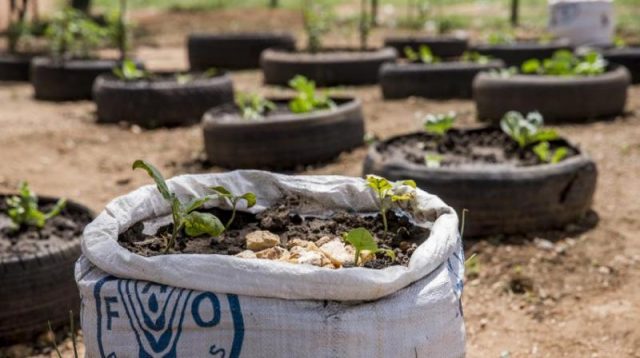…New FAO and ITU study highlights the benefits from the use of digital technologies in Sub-Saharan Africa

THUR 10 MARCH, 2022-theGBJournal- A new report co-published today by the Food and Agriculture Organization of the United Nations (FAO) and the International Telecommunication Union (ITU) offers one of the most comprehensive overviews to date on the status of digitalization in the Sub-Saharan Africa region, focusing on digital agriculture transformation.
The report – Status of Digital Agriculture in 47 Sub-Saharan African Countries – takes a deep dive into the status quo and the challenges that countries face along their digital transformation journeys.
An overview is given for each of the 47 countries on a variety of key indicators, such as access to electricity, ownership of mobile devices, number of apps in the national language, the gender gap in social media use, and regulatory frameworks.
But the study goes further than that, highlighting local examples and initiatives that should be promoted, replicated and scaled up to advance the region’s digital agriculture transformation.
“Agriculture modernization and rural transformation provide real opportunities for maximum impact on growth and shared prosperity for countries in the Africa region. Digitalization helps maximize the benefits digital technologies can bring in transforming societies, improving livelihoods through better production, better nutrition, a better environment, and a better life, leaving no one behind,” said Abebe Haile-Gabriel, FAO’s Assistant Director-General and Regional Representative for Africa.
Untapped potential
With the largest area of arable uncultivated land in the world, a youthful population – almost 60 percent of its people are below the age of 25 – and vast natural resources, sub-Saharan Africa is uniquely positioned to double or even triple its current agricultural productivity.
For this to happen, a digital transformation of the food and agriculture sector is needed. This requires tackling existing barriers, such as limited infrastructure in rural areas, insufficient funding for agriculture, and inadequate investment in research and development, agro-innovation and agricultural entrepreneurship.
Taking stock of the status quo and identifying such obstacles can go a long way in helping policymakers realize this untapped potential.
“There is an urgent need to invest in last mile connectivity to strengthen digital infrastructure generally and enable the development of inclusive digital agriculture strategies to advance agricultural transformation in Africa,” said Anne-Rachel Inné, ITU’s Regional Director for Africa.
Going forward, the study also offers suggestions on how to tackle these obstacles. They include encouraging governments to develop national digital agriculture strategies, creating a more conducive business environment for investors, and increasing collaboration among countries, international organizations and the private sector, so as to create an inclusive set of digital public goods in agriculture that are sustainable and scalable.
Twitter-@theGBJournal|Facebook-The Government and Business Journal|email: gbj@govbusinessjournal.ng|










